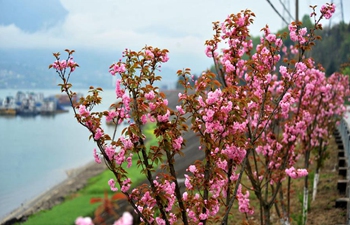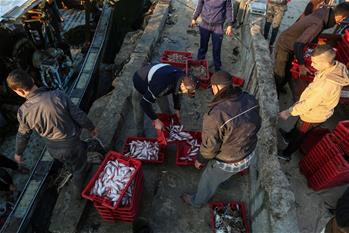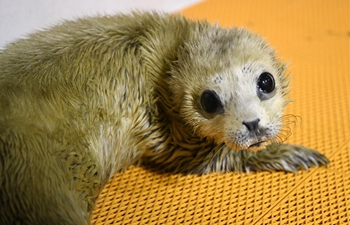WASHINGTON, April 2 (Xinhua) -- Material scientists found a way to mass-produce spider silk, which is stronger and tougher than steel and could be made for bullet-proof fabrics.
The study presented on Tuesday at the ongoing American Chemical Society's spring meeting reported the new method that takes advantage of engineered bacteria to produce spider silk.
Spider silk is hard to farm. Scientists tried to engineer bacteria, yeast, plants and even goats to produce spider silk in large quantity, but they failed to fully replicate the natural fiber's mechanical properties, partly because spider silk proteins are encoded by very long, highly repetitive DNA sequences and they become unstable in other organisms.
The project's principal investigator Zhang Fuzhong, a professor at Washington University in St. Louis, and his colleagues tried to break the long sequence into shorter blocks that bacteria could handle and make into proteins before assembling them into longer fiber.
The researchers inserted genes to bacteria that encoded two pieces of the spider silk protein, each flanked by a sequence called a split intein. Then, they broke open the bacteria and purified the short pieces of spider silk protein. The fragments could join together through the "glue" of the split intein sequence.
The microbially produced spider silk had all of the properties of natural spider silk, including exceptional strength, toughness and stretchability.
The researchers obtained two grams of silk per liter of bacterial culture with this method, more than they could get from spiders.
They can use the method to make other proteins by swapping the DNA sequences. One of them is a protein from mussels that adheres strongly to surfaces, which could someday be applied as an underwater adhesive.












